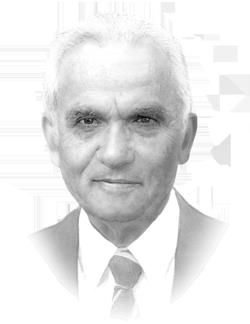
The war in Syria has come down to a game of Russian roulette between Turkey, Iran, Russia, and the US and its Kurdish allies. The losers of the latest round have been Washington and the Kurdish militias trying to carve out a land of their own following the abrupt withdrawal of US troops.
After a six-hour meeting at the Black Sea resort of Sochi on Tuesday, Russia and Turkey agreed a deal on how to jointly patrol areas of Syria that until recently were under the control of the Kurdish militias supported by the US. A 10-point memorandum went into effect at noon on Wednesday.
According to the deal, Russian military police and Syrian border guards will immediately facilitate the withdrawal of Kurdish militias from the Turkish border. Ankara’s first priority is to prevent any terrorist formation along its frontier.
Russian and Turkish forces then will jointly patrol the area now controlled by the Turkish military. This will increase cooperation between the two countries on the ground. Russian military police and border guards from Syria will monitor the border with Turkey. At that point, the two forces will “facilitate the removal of YPG elements and their weapons,” according to the memorandum. Here comes the most crucial part for Ankara: The YPG, or Kurdish militia People’s Protection Units, will have to leave the Turkish-declared security zone in northern Syria.
Few were expecting such an outcome from the Sochi meeting. The foreign ministers’ tone when detailing the memorandum, as well as the leaders’ facial expressions and body language, showed that the two countries — one a NATO ally and the other a nemesis of the US in the region — were carving out a new map for Syria as well as ushering in a new phase in the Syrian conflict.
From both a diplomatic and military perspective, the Sochi agreement is broadly considered a win for Moscow and a partial victory for Ankara.
Sinem Cengiz
From both a diplomatic and military perspective, the Sochi agreement is broadly considered a win for Moscow and a partial victory for Ankara — as long as Russia keeps its word.
Needless to say, Ankara today views Moscow as a more reliable partner than Washington — at least when it comes to the war in Syria. The rapid shift of control in Syria’s northern regions is of little concern to Turkey as long as Kurdish militias are given no space in which to grow.
For Moscow, the replacement of US troops that patrolled this area of war-torn Syria for years with Russian forces is a game-changing development. The deal not only cements Russia position as the main power broker in the region, but also increases Ankara’s sphere of influence in Syria following its cooperation with Russia and Iran in the Astana peace process.
Relations between Turkey and Russia are affected by many factors, including geopolitical position, national benefit, leaders’ ideology, regional conditions and the global political structure. All these paved the way for the two leaders’ agreement on Tuesday. Following the announcement of the pact, US President Donald Trump said that he would lift sanctions on Turkey after securing a commitment from Ankara that the cease-fire would become permanent.
History is replete with attempts to end conflicts by mediation. However, the fighting in Syria has proven exceptionally resistant to negotiation. Today, Turkey is just one of several countries reassessing its Syrian policy. Nevertheless, Tuesday’s deal doesn’t mean that the Syrian enigma is solved. On the contrary, it is merely the start of a new phase. Talks over the Syrian constitution due to start on Oct. 30 will reflect the negotiations in Sochi and subsequent steps taken on the ground — the latest moves in a game of Russian roulette.
Sinem Cengiz is a Turkish political analyst who specializes in Turkey’s relations with the Middle East. Twitter: @SinemCngz












